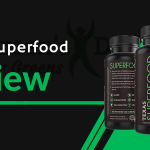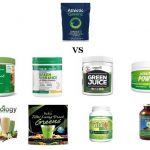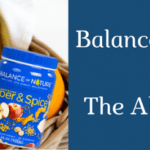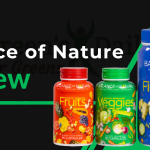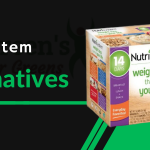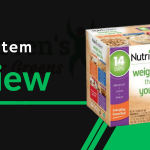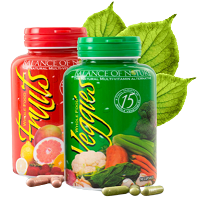Did you know that around 20% of the energy we consume is dedicated to fueling our brains? It’s quite an amount, especially when you consider that the human body has a total of 78 organs. Keeping our brain functioning at its best requires a supply of energy, and incorporating superfoods beneficial for the brain can potentially enhance its sharpness. Dive into this guide to explore ways to nourish your brain.
Top 9 Superfoods for Optimal Brain Health
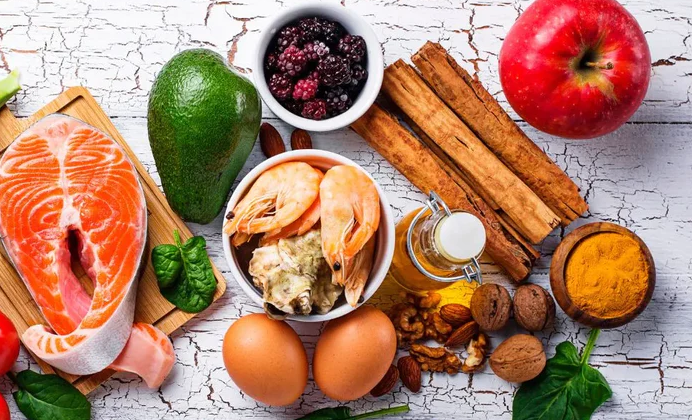
Nuts
Adding peanuts, walnuts, and almonds to your diet not only gives you a crunch but also offers excellent brain-boosting benefits. These nuts are packed with vitamin E, which has shown potential for enhancing function and supporting brain health (although more research is needed). Furthermore, nuts contain fats and compounds that contribute to memory function.
To boost both nutrition and flavor in your protein shake, smoothie, yogurt salad, or stir-fry, simply toss in a handful of nuts. They can also serve as satisfying snacks throughout the day; just remember to be mindful of portion sizes to manage calorie intake.
Turmeric
Turmeric is more than a spice or food coloring agent; it is known for its content, a compound that offers various benefits for brain health. Research suggests that curcumin can cross the blood-brain barrier, potentially boosting serotonin and dopamine levels, improving memory, and supporting the growth of brain cells.
To enhance brain health using turmeric, it is recommended to consider taking supplements. Although adding turmeric to meals and beverages is an option, the amount of curcumin in them is typically around 6%, which may not yield effects.
Whole Grain
Whole grains are another source of vitamin E that can benefit your brain’s nutrition. Opting for wheat bread and pasta, brown rice, oatmeal, and barley as processed alternatives can provide greater nutritional advantages.
When grains are milled to produce flour, the nutrient-rich center is often removed. This results in flour with a longer shelf life and easier cooking properties. However, whole grains retain nutrients overall, making them superior for both health and brain function. Several studies have started to shed light on this aspect.
Fish
Fish such as sardines, trout, salmon, and tuna are rich in omega-3 fatty acids, which are highly beneficial for our bodies. If you prefer plant-based alternatives, incorporating soybeans, chia seeds, or flaxseed into your diet can be an option. Insufficient consumption of omega-3 fatty acids can result in challenges related to memory and mood disorders, such as depression and learning difficulties. By increasing your intake of omega-3s, you have the potential to support the health of your system, manage mood disorders effectively, and combat decline.
Eggs
Eggs are widely recognized for their contribution to brain health due to their content of essential nutrients that benefit the brain, including vitamin B6, vitamin B12, and choline. Several studies suggest that eggs can play a role in supporting brain function among adults who are in good overall health. Moreover, eggs may offer the following benefits for brain well-being:
1. Facilitating neurotransmitter production: Eggs have the potential to contribute to regulating mood and enhancing memory by assisting in the production of neurotransmitters.
2. Maintaining chemical balance: Eggs help maintain a chemical balance within the brain.
3. Counteracting effects of aging: Some evidence suggests that eggs may help mitigate cognitive effects associated with aging.
It is worth noting that eggs are particularly rich in choline, a nutrient often lacking in people’s diets. Experts recommend an intake of 550mg for men and 425mg for women. Enough of a single egg yolk contains 112mg of choline, allowing for the consumption of up to five eggs per day if desired. However, if you have restrictions, allergies, or limited access to eggs, you can explore options like green powder supplements to ensure you meet your required nutrient intake.
Blueberries
When it comes to berries, blueberries take the spotlight with their multitude of potential benefits. One of their advantages is their anthocyanins, which actively combat inflammation in the body. Incorporating blueberries into your diet can be as easy as adding them to smoothies or cereal or enjoying them as a guilt snack. By consuming blueberries you provide support for your brain health by aiding memory retention protecting against tissue damage caused by oxidative stress and reducing the risk of age related cognitive decline.
Pumpkin Seeds
It’s essential to remember that the brain relies on minerals for hormone and enzyme production. Pumpkin seeds are a source of minerals like zinc, magnesium, iron, and copper. These minerals play a role in preventing fogginess, regulating nerve signals, and supporting cognitive functions such as learning and memory.
Incorporating pumpkin seeds and other mineral sources into your diet—whether through foods or supplements—may offer effects on brain-related conditions like depression and migraines.
Green Tea
Green tea provides more than a caffeine boost for the brain. It contains an amino acid called L-theanine, which is known for its anxiety-reducing and relaxation-inducing properties. L-theanine works to counteract the stimulating effects of caffeine, helping to create a sense of calmness. Moreover, the polyphenols present in tea have the potential to fight inflammation in both the brain and the body. There are ways to enjoy tea, whether its a simple hot brew sweetened with honey or used as a base for refreshing smoothies and iced drinks.
Leafy Greens
Including a variety of vegetables in your diet can contribute significantly to a nourishing eating plan. While all vegetables offer benefits, leafy greens like kale and spinach contain a combination of vitamins, minerals, and flavonoids that actively support your system, aid in stress management, and help combat age-related cognitive decline.
Which nutrients promote brain health?
To maintain well-being, it is crucial to choose rich foods of high quality. The brain, however, favors particular foods because they support its structure and functions. It’s an idea to include brain-boosting superfoods in your diet that contain the following compounds:
- Vitamin B plays a crucial role in metabolism and helps generate new brain cells.
- Vitamin E supports the system and assists in cell signaling.
- Omega-3 fatty acids aid in memory enhancement. Can help alleviate symptoms of depression.
- Choline contributes to maintaining cell structures and the transmission of neurotransmitters in the brain.
- Antioxidants protect cells from radicals, which are linked to brain inflammation and memory decline.
Taking an approach to nourishing your brain involves more than consuming superfoods. It also requires adopting lifestyle choices. Here are five proven methods for promoting physical and mental well-being:
1. Engage Your Mind and Body: Challenge your brain with activities like arts, crafts, math problems, or puzzles. These activities stimulate the creation of cells and enhance focus, memory, and learning abilities. Additionally, regular physical exercise regulates stress levels, improves oxygen intake and blood flow, and enhances functions.
2. Prioritize Sufficient Sleep: Adequate sleep is not a luxury but an essential requirement for the brain. Lack of sleep can result in difficulty focusing and an increased risk of health issues. To improve your well-being, it’s important to make sure you get a minimum of seven hours of sleep each night.
3. Limit Smoking and Drinking: While it may be tough to quit smoking and drinking due to their nature, it’s crucial to reduce and eventually eliminate these habits. Both smoking and excessive alcohol consumption significantly raise the chances of long-term health problems. Prioritizing your health means choosing to stay away from these substances.
4. Cultivate Social Connections: Despite the challenges posed by distancing and the ongoing COVID-19 pandemic, finding ways to connect with others is essential. Building relationships by meeting people, participating in community activities, and spending quality time with family contributes positively to brain health.
5. Manage Your Weight: Maintaining a healthy weight is vital for your well-being. This requires being mindful about consuming foods, managing stress levels effectively, and ensuring you get sleep. If sticking to a diet seems challenging, incorporating a superfood powder into your meals or drinks can help ensure you’re getting adequate nutrition. Similarly, if intense exercise is difficult for you, low-impact activities like walking, gardening, or doing household chores can still contribute to maintaining your weight.
To maintain a healthy brain, it’s important to be conscious of your weight and make choices. Along with consuming brain-boosting superfoods, incorporating these lifestyle changes is crucial for supporting brain health and overall well-being.
The Bottom Line
In summary, certain nutrients like vitamin B, vitamin E, omega 3, choline, and antioxidants have been recognized as beneficial for the brain. When it comes to superfoods that promote brain health, our recommendations include turmeric, nuts, whole grains, fish, eggs, blueberries, pumpkin seeds, green tea, and leafy green vegetables. Additionally, making lifestyle adjustments can also support brain health. This includes prioritizing quality sleep time and managing weight effectively.
References:
![Organifi Green Juice Reviews [USA] – Best Superfood Drink](https://mygreensdaily.com/wp-content/uploads/2020/04/organifi-new-featured-150x150.png)
